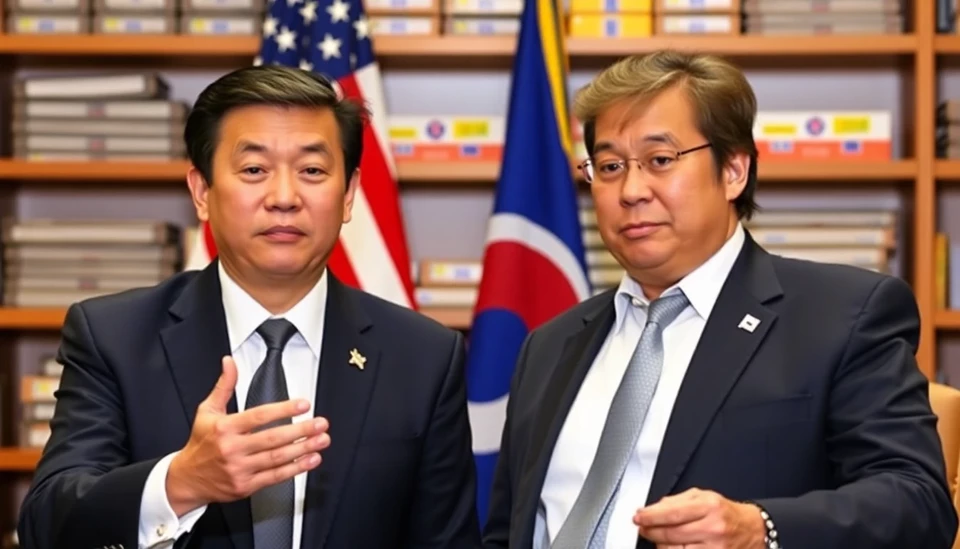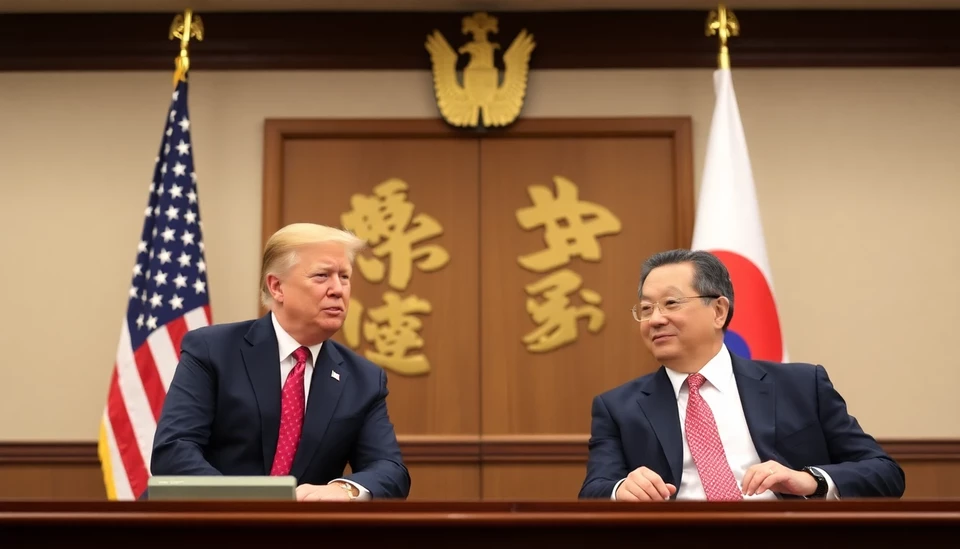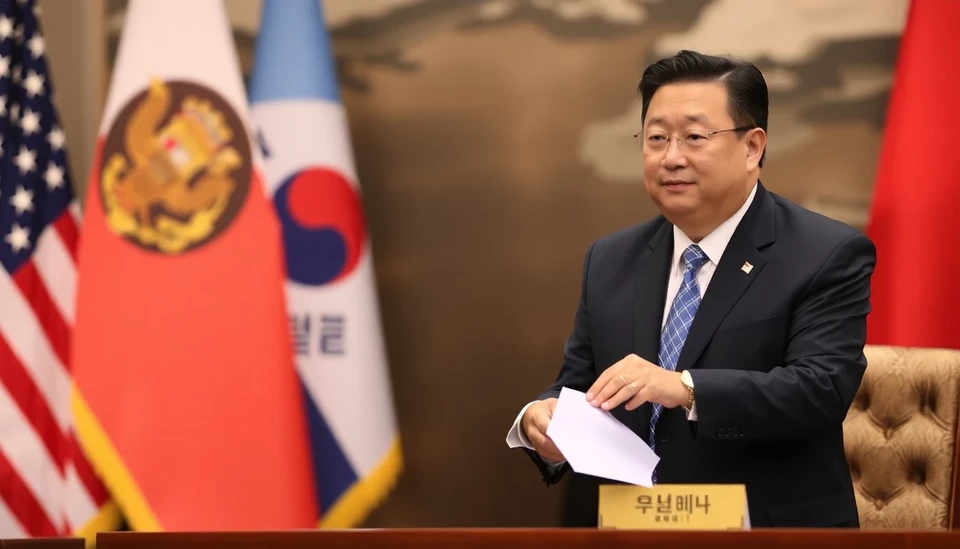
In a significant development in international trade relations, South Korea has welcomed U.S. President Donald Trump's recent decision to implement a 90-day pause on tariffs as both nations engage in pivotal trade talks. This strategic move, announced amid escalating tensions between Washington and Beijing, is seen as an opportunity for improving economic relations and exploring new avenues for cooperation.
South Korean officials have expressed optimism regarding the tariff suspension, which they believe could lead to constructive discussions aimed at resolving underlying trade issues. The original threat of tariffs had raised concerns within South Korea's export-driven economy, especially in critical sectors such as electronics and automotive manufacturing. The pause allows for negotiations to proceed without the immediate pressure of punitive tariffs that could disrupt the flow of goods and services across both nations.
President Trump’s decision to halt the proposed tariffs came after consultations with South Korean leaders, who argued that resolving trade disparities through dialogue rather than conflict would be more beneficial for both countries. This pause not only aims to reduce immediate economic strain but also reflects a willingness to find a mutually agreeable solution to trade challenges.
During a press conference, South Korean Trade Minister Yoo Myung-hee stated, "This 90-day period provides a timely opportunity for both nations to align our interests and deepen our economic ties." The sentiment has been echoed across various sectors in South Korea, as businesses and government officials alike see the potential for bolstered economic partnerships resulting from successful negotiations.
In the wake of the announcement, South Korean financial markets experienced a modest uptick, signaling investor confidence in the outcomes of the trade discussions. Analysts claim that a successful dialogue could lead to broader economic benefits, not only for South Korea but also for the stability of the global market amidst escalating trade tensions, especially between major economies like the U.S. and China.
The underlying issues prompting these trade talks remain complex, with key concerns revolving around trade deficits and market access. South Korea, which has increasingly relied on exports to fuel economic growth, hopes to use this opportunity to advocate for fairer trade terms and more favorable conditions for South Korean products in the U.S. market.
As both nations prepare for high-level discussions, many stakeholders are urging a collaborative approach that prioritizes industry needs and safeguards jobs. This collaborative spirit appears crucial in achieving long-term stability and resolving entrenched disparities that have characterized U.S.-South Korea trade dynamics over the years.
As the clock ticks down on the 90-day pause, all eyes will be on the negotiations ahead, with both countries striving toward a favorable resolution that could redefine their economic relationship for years to come. Analysts will continue to monitor the developments closely, as the implications of these talks extend far beyond the shores of South Korea and the United States, influencing global trade patterns in the process.
In conclusion, the decision to pause tariffs has sparked hope for improved relations and economic cooperation between South Korea and the U.S. as they embark on what could be a transformative dialogue in the coming months.
#SouthKorea #Trump #TariffPause #TradeTalks #Economy #InternationalTrade #USRelations #TradeNegotiations #GlobalEconomy
Author: Rachel Greene




